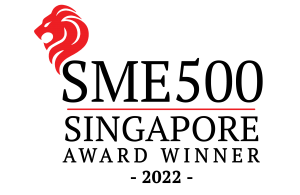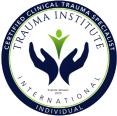Looking for rapid, deep healing in Singapore? EMDR intensives offer fast, structured therapy for lasting transformation. Learn why professionals choose this approach.
If you’re in Singapore and looking for real change, you might be wondering: How long should psychotherapy take? How much should it cost? And what actually works?
The truth is, effective psychotherapy isn’t just about endless conversations—it’s about targeted, focused work that creates real change. And while psychotherapy, counselling, and coaching should be accessible to everyone, quality, expertise, and lasting transformation require investment.
For those ready to move forward in a structured, outcome-driven way, intensives offer a focused alternative—one designed for depth, clarity, and breakthroughs in a shorter time frame..
Why Some People Judge Cost Over Value—and Why That’s a Performance Part Speaking
Many people approach psychotherapy, counselling, or coaching through the lens of cost rather than value, but this often comes from a performance-driven part of the self—the one conditioned to measure everything in metrics and transactions. This part is trained to ask:
- How much am I spending?
- Is this “worth” it per hour?
- Could I get this cheaper elsewhere?
Yet, the real question should be:
- What am I gaining in the long run?
- How much time, energy, and emotional exhaustion will I save by doing this effectively?
- What’s the cost of staying stuck in patterns that are draining me?
Many clients focus on upfront costs rather than the bigger picture—how much time, energy, and money they’ll invest over the years. A structured, high-impact approach can often lead to faster, more lasting change, making it a more effective investment in the long run.
Reframing the Cost of Healing: An Investment in Yourself
It’s not that the program or the intensive is expensive—it’s that the value isn’t yet visible to you. And when we struggle to see the value in something that could transform our lives, it often reflects how we see our own worth.
Today, someone shared that they felt joy for the first time in years. Moments like these remind me why I do what I do. It’s not just about psychotherapy, or rewiring; it’s about unlocking what has felt impossible, shifting lifelong blocks that no other program I know of can reach at this depth.
Real transformation isn’t about cost—it’s about what it makes possible. And when you truly invest in yourself, everything changes.
Why People Are Choosing Intensives Over Traditional Weekly Therapy
In Singapore, where high-achievers often have demanding schedules, psychotherapy has traditionally followed the weekly, open-ended model—a gradual process where clients and therapists build rapport over time, unpack experiences session by session, and work toward long-term change. But what if you don’t want to wait years to feel better?
Intensives are designed for those who:
- Want deep, focused support in a shorter time frame.
- Prefer a clear structure rather than open-ended exploration.
- Are ready to get to the root of patterns and start shifting them now.
- Value direct, effective strategies with real-time guidance.
In a typical therapy model, it can take weeks or months to cover what an intensive can do in just a few days. That’s because the immersive nature of intensives allows for faster integration—you’re not resetting every session, but staying in the work, allowing deeper connections to emerge.
Who Are Intensives For?
Intensives aren’t for everyone—they’re for those who are ready to dive deep, make profound shifts, and experience transformation in a concentrated period. They are ideal for:
🔹 High-achievers who feel stuck – You’ve done the self-work, tried different modalities, and yet something still feels unresolved. Intensives help break through deep-seated patterns quickly.
🔹 People exhausted by traditional weekly therapy – If you’re tired of slow, incremental progress and want to move beyond surface-level change, an intensive provides the depth needed for real breakthroughs.
🔹 Those at a turning point – Whether you’re navigating major life changes, grief, relationships, or trauma, an intensive helps you rewire old patterns and step into clarity.
🔹 Clients who feel like nothing else has worked – If talk therapy, self-help books, or even other trauma-focused approaches haven’t created lasting change, an intensive can be the missing piece.
🔹 Busy professionals and entrepreneurs – If your schedule makes weekly therapy impractical, an intensive allows you to do deep work efficiently without dragging it out over months or years.
🔹 Couples who want to heal deeply and fast – Instead of repeating the same cycles, couples can experience shifts in how they communicate, connect, and understand each other in ways traditional therapy often struggles to facilitate.
🔹 Anyone who wants deep, lasting change – This isn’t a quick fix; it’s an accelerated path to transformation, allowing you to work through what’s been holding you back and move forward with clarity and confidence.
Who It’s Not For:
❌ Those looking for passive healing without personal commitment.
❌ People who aren’t ready to explore their emotions or engage in deep self-inquiry.
❌ Anyone expecting a magic solution without participation and integration.
If you’re drawn to this but feel unsure, that’s okay. The best way to know if an intensive is right for you is to reach out and explore whether this is the right time for your transformation.
What Most People Don’t Know About EMDR, Psychotherapy, and Coaching Training
When it comes to EMDR, psychotherapy, counselling, or coaching, expertise isn’t just about certification—it’s about deep experience, practice, and refinement.
- Many EMDR therapists start with a foundational weekend training, but true mastery comes from ongoing practice, advanced study, and real-world application.
- The “advanced” EMDR courses? Another weekend. Many therapists complete these trainings but may not have the experience or support to confidently integrate the work at a deeper level.
- While structured models provide a foundation, the most effective practitioners go beyond scripts—adapting their approach to meet each client’s unique needs.
The difference between a highly skilled psychotherapist and one who simply holds a certificate isn’t just in training—it’s in practice. A therapist or coach who charges more isn’t just offering a higher price; they:
- Study their clients between sessions, looking for patterns and personalising the work.
- • Commit to continuous learning, staying updated each year with the latest neuroscience, best practices, and refinements.
- • Take time to rest and regulate themselves, ensuring they show up fully present rather than burnt out.
- • Live what they teach—because if a therapist or coach doesn’t practice what they preach, how can they guide others to do the same?
This is why after an intensive, a skilled practitioner doesn’t jump straight back into sessions—they allow space to rest and integrate, ensuring they remain fully regulated and at their best for the next client. That alone is a sign of someone who takes their work seriously.
The Advanced AIP Model: Why This Work Keeps Processing Long After the Intensive Ends
The Adaptive Information Processing (AIP) model, which is the foundation of EMDR, is based on a simple yet profound truth: your brain is naturally wired to heal.
When past experiences haven’t been fully processed, they get stuck, looping in the nervous system and showing up as distress, triggers, or limiting beliefs. Advanced EMDR doesn’t just help process what’s stuck in the session—it actually unlocks the brain’s ability to continue self-processing long after the therapy ends.
This is what makes intensives so powerful: the work doesn’t stop when you leave. Instead, the brain integrates and reorganizes information in the days, weeks, and even months following an intensive, allowing insights and emotional shifts to deepen over time.
Why Paying for Quality Psychotherapy Saves You Time and Money in the Long Run
People often worry about the cost of psychotherapy, counselling, or coaching, but what’s rarely discussed is the cost of ineffective work.
- Longer timelines: Traditional models can take months or years to get to the same breakthroughs that can happen in an intensive in days.
- Emotional fatigue: When therapy lacks direction, it can feel frustrating—like progress isn’t happening.
- Repetitive cycles: Without structured processing, sessions can become loops of talking rather than transforming.
By investing in a practitioner who is highly trained and structured, you’re actually saving time, money, and energy—because every session is designed to create movement.
Final Thought: Psychotherapy Should Work—And Last Forever
The goal of therapy, coaching, or counselling is not to stay in the process endlessly. The goal is to integrate, process, and step into life with more clarity and ease.
Intensives provide an opportunity for deep work, rapid integration, and real results—so you can move forward with the insight and tools you need, rather than feeling stuck in an endless process.
If you’re someone who values efficiency, depth, and a structured, highly skilled approach, an intensive might be exactly what you’re looking for.
If you’re in Singapore and want to explore how an EMDR intensive can help you, reach out to see if this approach is right for you.















